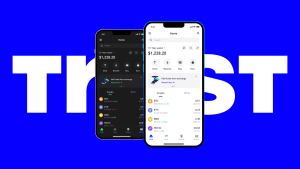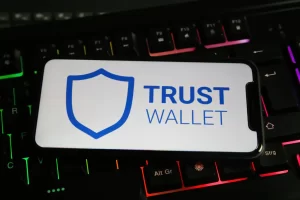Is Trust Wallet belong to Binance?
No, Trust Wallet is not owned by Binance, but Binance acquired it in 2018. It remains an independent, decentralized wallet supporting a wide range of cryptocurrencies and networks.

Understanding Trust Wallet’s Ownership and Binance’s Involvement
The Relationship Between Trust Wallet and Binance
- Binance Acquisition in 2018: Binance acquired Trust Wallet in 2018. Despite this, Trust Wallet remains an independent and decentralized wallet that supports various cryptocurrencies, making it more versatile than Binance’s native wallet.
- Binance Integration with Trust Wallet: While Binance owns Trust Wallet, it has allowed the wallet to operate independently, meaning users have the freedom to store tokens from any blockchain, not just those listed on Binance.
- Trust Wallet’s Non-Custodial Nature: Trust Wallet is a non-custodial wallet, meaning users maintain control of their private keys. Binance’s involvement does not affect this principle, ensuring user privacy and security.
What Binance’s Acquisition Means for Trust Wallet Users
- Access to Binance’s Ecosystem: Users of Trust Wallet benefit from Binance’s ecosystem, including seamless transfers to Binance accounts for trading and easy access to Binance Chain and Binance Smart Chain (BSC) assets.
- Continued Independence: Despite Binance’s ownership, Trust Wallet has continued to evolve independently, integrating features and assets that appeal to a broad user base beyond Binance’s platform.
- Improved Support and Development: Binance’s acquisition has led to better funding and support for Trust Wallet’s development, ensuring it remains one of the most reliable multi-asset wallets in the crypto space. Users can expect more regular updates and enhanced features.
Is Trust Wallet Fully Owned by Binance?
The History of Trust Wallet and Binance’s Acquisition
- Trust Wallet’s Founding: Trust Wallet was initially founded in 2017 as an independent multi-currency wallet designed to support a wide range of digital assets across various blockchains.
- Binance’s Acquisition in 2018: In 2018, Binance, one of the world’s largest cryptocurrency exchanges, acquired Trust Wallet to integrate it into its ecosystem and provide users with a secure, decentralized wallet for managing their digital assets.
- Continued Independence: Despite being acquired by Binance, Trust Wallet continues to function as an independent, non-custodial wallet, meaning users retain control over their private keys and assets.
How Binance’s Ownership Affects Trust Wallet’s Operations
- Improved Development and Resources: Binance’s ownership has provided Trust Wallet with additional resources, allowing for faster development, more robust features, and better security. This has helped the wallet evolve into a comprehensive, multi-chain solution.
- Seamless Binance Integration: Trust Wallet offers deep integration with Binance’s platforms, including Binance Chain and Binance Smart Chain (BSC), enabling easy transfers between Trust Wallet and Binance accounts for trading or token management.
- Maintaining Independence: Despite Binance’s acquisition, Trust Wallet remains a decentralized wallet. It continues to support a wide array of cryptocurrencies and blockchain networks, allowing users to manage assets beyond the Binance ecosystem.
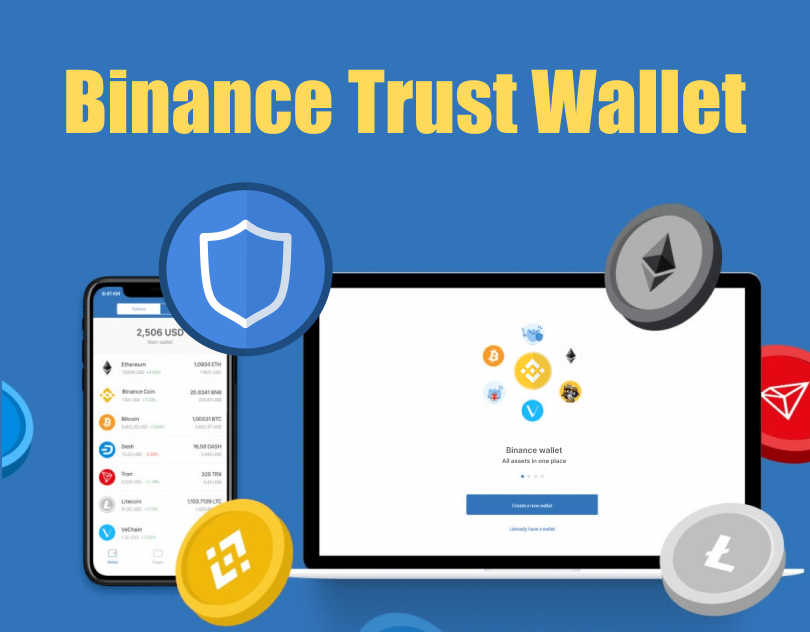
How Binance’s Acquisition Impacts Trust Wallet Users
Does Binance Have Control Over Trust Wallet’s Features?
- Independence in Functionality: Despite Binance’s acquisition, Trust Wallet remains an independent app. Binance does not control the wallet’s core features or dictate its cryptocurrency support, ensuring that users can access a broad range of assets.
- Focus on User Privacy and Security: Trust Wallet retains its non-custodial nature, meaning users still have full control over their private keys and funds, even under Binance’s ownership.
- Continued Multi-Blockchain Support: Trust Wallet continues to support multiple blockchains, including Ethereum, Binance Smart Chain, Solana, and many others, giving users a decentralized platform for managing a wide range of cryptocurrencies.
The Benefits of Binance’s Acquisition for Trust Wallet Users
- Access to Binance Ecosystem: Binance’s acquisition provides Trust Wallet users with seamless integration into the Binance ecosystem, making it easier to transfer assets between Trust Wallet and Binance exchanges for trading or other activities.
- Faster Development and Updates: With Binance’s backing, Trust Wallet benefits from increased resources and development speed, resulting in more frequent updates, enhanced security, and better functionality.
- Improved User Experience: The partnership with Binance has improved Trust Wallet’s features, including better performance, access to Binance Smart Chain (BSC) tokens, and more efficient transaction processes.
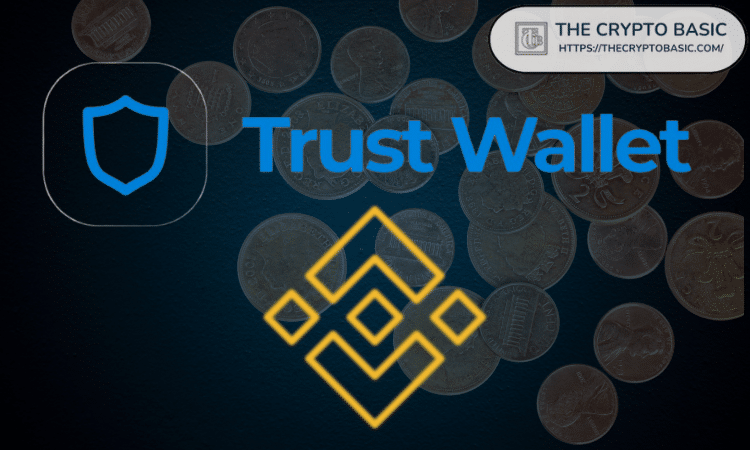
The Difference Between Trust Wallet and Binance’s Native Wallet
How Trust Wallet Stands Out from Binance’s Wallet
- Multi-Currency Support: Trust Wallet supports a wide range of cryptocurrencies and tokens across multiple blockchains, including Ethereum, Bitcoin, Solana, and Binance Smart Chain (BSC), while Binance’s wallet primarily focuses on assets within the Binance ecosystem.
- Non-Custodial: Trust Wallet is a non-custodial wallet, meaning users retain full control over their private keys and funds. In contrast, Binance’s native wallet, which is integrated with its exchange, operates under a custodial model where Binance holds user assets.
- Decentralized vs. Centralized: Trust Wallet is a decentralized wallet that operates independently of centralized exchanges. Binance Wallet is tightly integrated with Binance Exchange, offering features tailored to users who are actively trading on the platform.
Comparing Features of Trust Wallet vs. Binance Wallet
- User Control: Trust Wallet gives users complete control over their private keys, ensuring that assets are not held by any third party. Binance Wallet, however, is managed by the Binance platform, meaning the exchange controls the wallet’s security and accessibility.
- Integration with Exchanges: Binance Wallet is more closely tied to Binance’s exchange services, enabling easy deposit, withdrawal, and trading of cryptocurrencies. Trust Wallet, while also integrated with Binance, supports a broader array of external platforms and decentralized services.
- Token Compatibility: Trust Wallet offers broader compatibility with multiple blockchain ecosystems and decentralized applications (dApps). Binance Wallet is more focused on Binance Chain and Binance Smart Chain (BSC) tokens, which limits its token support compared to Trust Wallet.
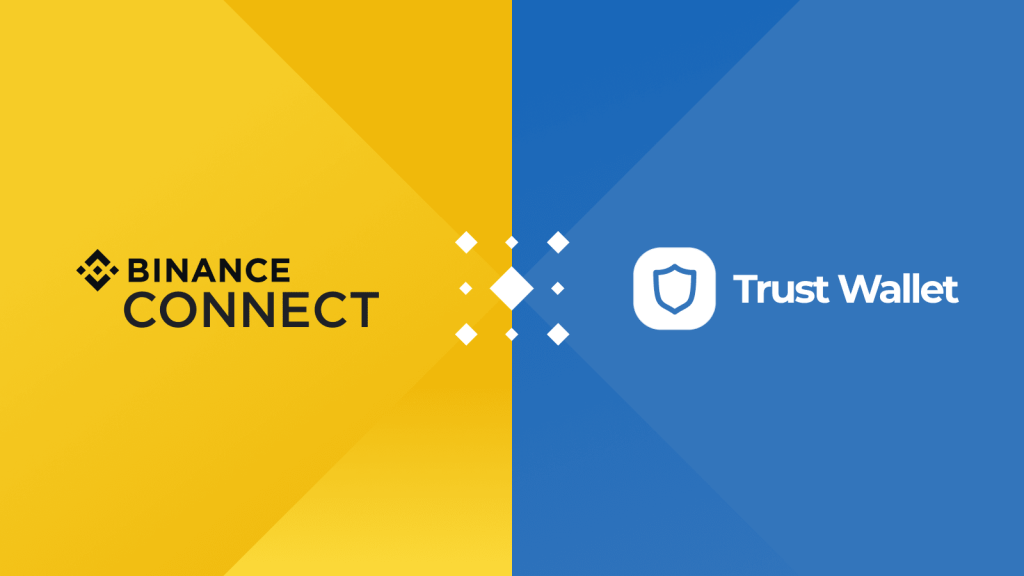
Does Binance Influence Trust Wallet’s Cryptocurrency Support?
How Trust Wallet Supports Multiple Blockchains
- Wide Blockchain Integration: Trust Wallet supports a broad range of blockchains beyond Binance’s ecosystem, including Ethereum, Solana, Bitcoin, Cardano, and many more. This gives users flexibility to manage various assets on different networks.
- Cross-Chain Compatibility: Trust Wallet allows users to store and interact with tokens across different blockchain networks. This is particularly useful for users who own assets from multiple platforms and want a unified solution to manage them.
- Decentralized Application (dApp) Access: Trust Wallet enables users to connect with decentralized applications (dApps) across multiple blockchains, making it more than just a storage solution. Binance’s influence does not limit this, as Trust Wallet integrates dApps from various ecosystems.
Understanding Trust Wallet’s Blockchain Compatibility
- Ethereum and ERC-20 Tokens: Trust Wallet fully supports Ethereum and all ERC-20 tokens, enabling seamless interaction with Ethereum’s dApps and decentralized finance (DeFi) platforms.
- Binance Smart Chain (BSC): While Binance Smart Chain is a major focus for Trust Wallet due to its ownership by Binance, it is not the only blockchain supported. Trust Wallet is compatible with numerous other blockchain networks, ensuring broader flexibility.
- Multi-Token Support: Beyond BSC, Trust Wallet also supports BEP-2 tokens, Bitcoin, Litecoin, and other popular cryptocurrencies, offering a comprehensive solution for users seeking a wallet that can handle assets from a wide variety of blockchain networks.

